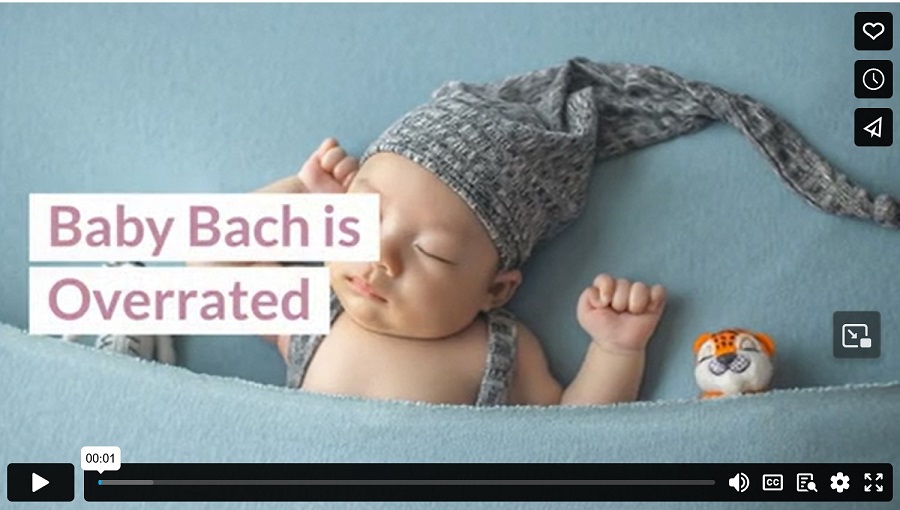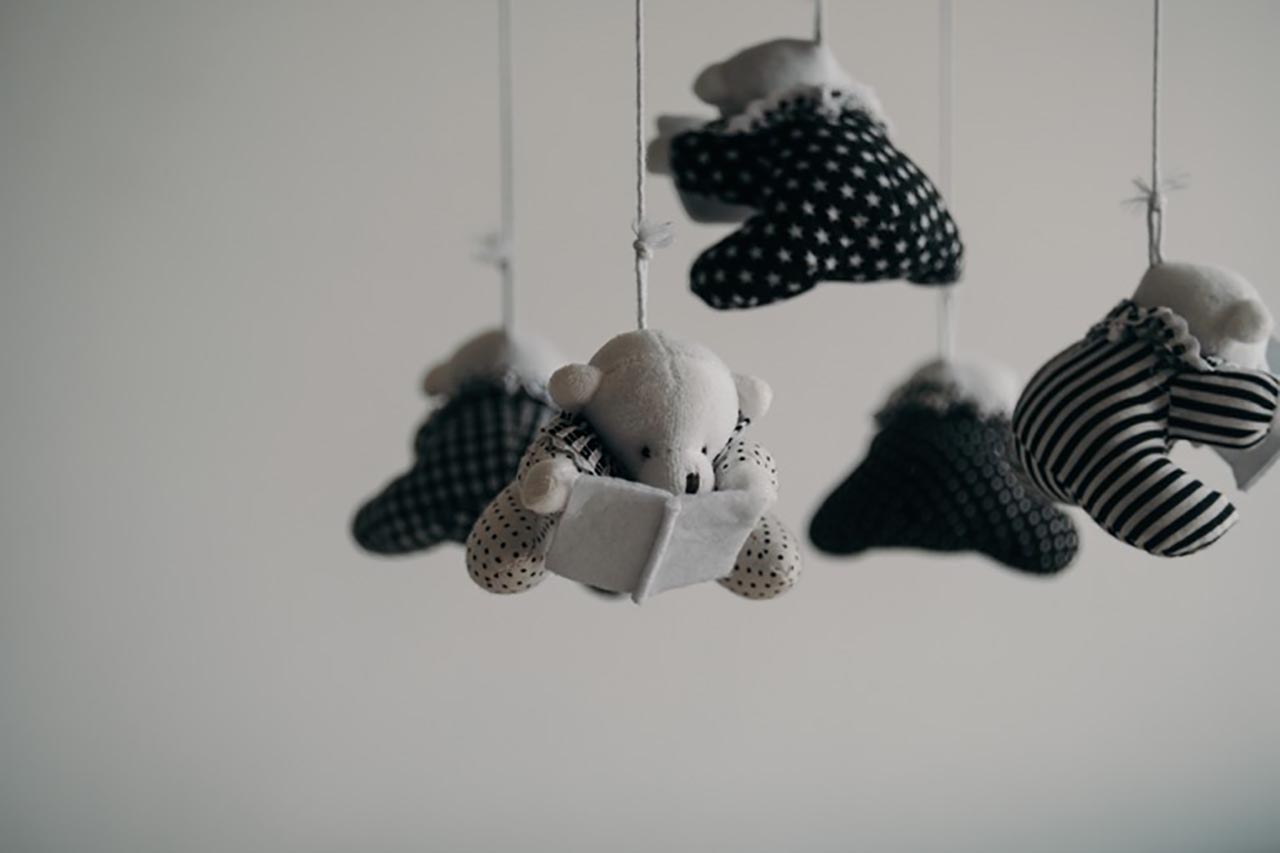Rock-a-bye baby,
On the treetop.
When the wind blows,
The cradle will rock.
When the bough breaks,
The cradle will fall,
And down will come baby,
Cradle and all.
Why on earth are we singing this to young children? Still, there are worse lullabies in the world. Check out this one from Spain:
Sleep little one
Sleep already
Or the Coco will come and take you away.
Sleep little one
Sleep already
Or the Coco will come and eat you up.
Some countries replace Coco with Lobo, which means wolf. This, oddly enough, does not improve the situation.
Parents have been singing babies to sleep for thousands of years, and while it is unclear why many of those lullabies have such sad or violent imagery, it is clear that babies and music are a natural partnership. If we set the baby-eating wolf threats to the side, we can see that music can be a lovely and nurturing tool for babies and their developing brains.
Picking out Patterns
Speech is all about patterns, and exposing babies to music early on can help them recognize patterns and other speech processes. Pattern perception is key to healthy brain development, and giving your baby opportunities to listen to the rhythm and repetition in music can strengthen their mental muscles. Variations in pitch and speed in music can also help children recognize voices and vocal cues in speech.
Building Muscle
Listening to music can build brain connections, but listening to and making music can really fire up a baby’s brain. Music is a lovely combination of art and math because it is full of rhythms and counting. That combination creates an opportunity to connect both sides of the brain, especially when a youngster actively creates music instead of just passively listening.
A baby that claps, squawks, or bangs along to make their own music might not be creating a Spotify-worthy symphony, but their developing brain is creating all sorts of powerful connections.
Calming Down
Taking care of a baby can feel stressful, but being a baby is no piece of cake, either. They are growing teeth, figuring out how to control their body, and trying to communicate needs they don’t even understand to someone who can’t understand them.
Music can be a powerful stress reliever for a brain that is worn out after a hard day’s work. Soothing music can cue a baby’s body to release soothing endorphins and get ready for sleep.
What Kind of Music When?
As parents, you are constantly trying to figure out the “right” way to help your babies develop. What’s the “right” food? The “best” diaper? The “correct” sleeping arrangement? The truth is, music, just like food, diapers, and cribs, has no absolute rules for right or wrong. You need to find what works best for you and your baby.
The best kind of music for a baby is what you love listening to with your child. Any music that makes you happy and creates moments you enjoy together is “good” baby music! It doesn’t have to be Beethoven or Bach.
Contrary to popular culture, listening to music isn’t about improving SAT scores – it is about helping your child create a healthy connection with you and build important connections in their brain. Play your favorite music and enjoy! Dance with and around your baby. Sing to and with your child. That time and those happy moments will build fantastic memories and connections in their developing brain. Forget the “right” way–do it your way!
Music and Sleep
Good sleep is necessary, so your baby’s brain can process everything it experiences during the day. And since you know that calming music can be an excellent way to help your baby sleep through the night, sending them off to dreamland with soft music in the background seems like a no-brainer.
You need to be careful, though, because music at bedtime can become a crutch. If your goal is to train your child to sleep on their own, having music playing throughout the night can create a habit that is difficult to maintain. If your baby can’t sleep unless they hear the Boston Symphony Orchestra playing Beethoven’s 3rd Movement in C with a specific violinist playing first chair, then down the road, that baby might become a child that won’t sleep through the night. The ideal is to create an independent sleeper that is flexible and adaptable.
While you might not want to play it all night long, music can still be a helpful tool and a valuable part of the bedtime routine. Quiet and calming music can be a wonderful cue that it is time to wind down, relax, and prepare for bed. Our brains have a knack for recognizing patterns, and if there is a variety of soothing music before the bedtime routine begins, it can help a baby begin to relax and prepare to sleep.
No Rules, Just Relax
Parenting isn’t easy. We love our children so much that we want to get everything just right, even the music. Don’t focus on classical music getting your child into Harvard. Instead, listen to what you love, and sing and dance with the baby you love. That’s the only music you need.
Video



